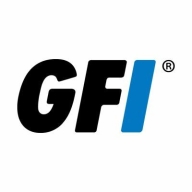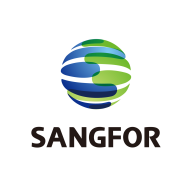


KerioControl and Sangfor NGAF are two prominent competitors in the cybersecurity market, both offering unique features and advantages. KerioControl's user-friendly interface and comprehensive VPN options provide an edge in usability, while Sangfor NGAF's robust application control and cost-effective pricing make it appealing for smaller businesses.
Features: KerioControl is notable for its ease of use and smooth integration with Active Directory, providing an intuitive user interface that simplifies navigation and configuration tasks. Its comprehensive VPN features are highly beneficial for companies with remote work requirements. Sangfor NGAF distinguishes itself with powerful application control and effective intrusion detection, ensuring strong network security. Its all-inclusive security center offers an integrated approach to managing network defenses.
Room for Improvement: Users of KerioControl would benefit from enhanced VPN configurations, a more advanced intrusion prevention system, and finer diagnostic tools. There is also a desire for more flexible VLAN creation, additional wireless capabilities, and improved high availability features. Sangfor NGAF could refine its application control policies and reporting system, as some users find its web interface complex and lacking in international support.
Ease of Deployment and Customer Service: KerioControl offers a generally smooth deployment experience both on-premises and in hybrid settings. However, user feedback on GFI's technical support varies, with some noting difficulties in licensing and support delays. Sangfor NGAF provides straightforward deployment options, but some users report complexity during the setup. The solution receives positive feedback for its responsive support, which is crucial for real-time reporting improvements. Sangfor's investment in local support enhances client service effectiveness.
Pricing and ROI: KerioControl is viewed as affordable given its feature set, though its licensing approach can seem intricate. The bundling of diverse functionalities under a single license is seen as a cost-effective strategy over time, especially in bandwidth management. Sangfor NGAF presents competitive pricing, generally lower than competitors like Fortinet and Sophos, with flexible licensing enhancing its cost-to-performance ratio and accelerating ROI through straightforward setup and inclusive security features.
| Product | Market Share (%) |
|---|---|
| Fortinet FortiGate | 20.4% |
| Sangfor NGAF | 1.2% |
| KerioControl | 1.3% |
| Other | 77.1% |



| Company Size | Count |
|---|---|
| Small Business | 350 |
| Midsize Enterprise | 130 |
| Large Enterprise | 187 |
| Company Size | Count |
|---|---|
| Small Business | 44 |
| Midsize Enterprise | 9 |
| Large Enterprise | 3 |
| Company Size | Count |
|---|---|
| Small Business | 15 |
| Midsize Enterprise | 10 |
| Large Enterprise | 10 |
Fortinet FortiGate excels in providing integrated VPN, firewalling, and Unified Threat Management (UTM) with centralized management and high availability. It supports remote access and comprehensive threat protection, making it a preferred choice for securing networks.
Fortinet FortiGate offers a robust security platform with features such as strong intrusion prevention, application control, and web filtering. Its integration with Active Directory and SD-WAN functionality provides scalable solutions for large networks. Users appreciate its ease of use through centralized management interfaces, ensuring robust security with flexible configurations. However, FortiGate could enhance its graphical interface and technical support responsiveness, address firmware bugs and costly licensing, improve logging, integrate better with third-party tools, and strengthen scalability and memory for log storage. Complexity in configuration and the need for intuitive features are noted challenges, and there's a demand for advanced security, zero-trust capabilities, and AI integration.
What are the key features of Fortinet FortiGate?Fortinet FortiGate is widely implemented across industries like education, finance, and government. Companies use it for firewall protection, VPN, and SD-WAN capabilities, ensuring secure perimeter and data center security. It facilitates remote access management and traffic routing optimization, offering reliable security and connectivity solutions.
Kerio Control is a popular security product for small and medium-sized businesses. It is a next-generation firewall that provides unified threat management without complexity. Kerio Control provides advanced anti-virus protection and industry-leading web and content application filtering, and has a secure VPN.
With Kerio Control you can:
Kerio Control Features
Some of Kerio Control’s most valuable features include:
High availability, deployment flexibility, deep packet inspection, advanced routing, usage reporting, quick administering, intrusion detection and prevention (IPS), gateway anti-virus, VPN, web and content application filtering, and centralized administration with MyKerio.
Kerio Control Benefits
Reviews from Real Users
Here is some feedback from some of our users who are currently using the solution:
PeerSpot user Brian C., Senior Technology Specialist, VP at Unified Technology Solutions, writes "It is very comprehensive and simple. It has all the active protections. It's updated. We love that you can set how often it is updated so you can work on what is right for you. A large company with a lot of bandwidth can update the virus definitions and security definitions hourly, if they want. A smaller site that's remote, where maybe updating the definitions will eat into the bandwidth, we can schedule those more to go later at night. It's very flexible and works for us in all types of situations. This is great because then we don't have to learn seven different products to be able to work with seven different scenarios."
Andy D., IT Manager at Flare Technologies, praises how easy it is to use and says, "One thing we use quite a lot, as well, is the DHCP Server, because we do a lot of work where all our devices need to have static IP addresses. Rather than going around and configuring every box, we do it all through DHCP reservations. It's easier. We've got a record of it. We can manipulate it if we need to change something or change some hardware. It's all easy. Even guys who are not used to using it can pick it up quite quickly."
Sangfor Next Generation Firewall (also known as NGAF) is a converged security solution providing protection against advanced threat, malware, viruses, ransomware and web-based attacks using integrated security features like firewall, IPS, anti-virus, anti-malware, APT, URL filtering, Cloud Sandbox, and WAF. As the world's first AI-enabled and fully integrated Next Generation Firewall & Web Application Firewall (WAF), NGAF offering the security visibility, real-time detection and response, simplified operation and maintenance and high-performance application layer security needed to operate an enterprise network in total security. Tested and proven to provide cutting-edge network security by ICSA Labs and endorsed by Gartner Inc., NGAF harnesses the power of Sangfor’s Neural-X threat intelligence and analytics platform and Engine Zero’s innovative malware detection to provide next-generation protection for today’s enterprise.
We monitor all Firewalls reviews to prevent fraudulent reviews and keep review quality high. We do not post reviews by company employees or direct competitors. We validate each review for authenticity via cross-reference with LinkedIn, and personal follow-up with the reviewer when necessary.